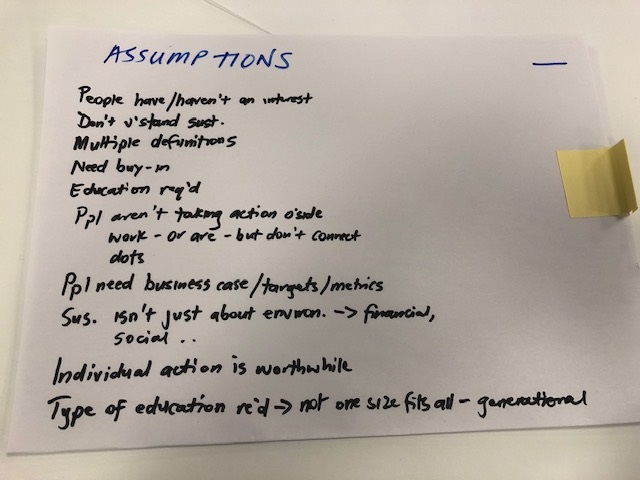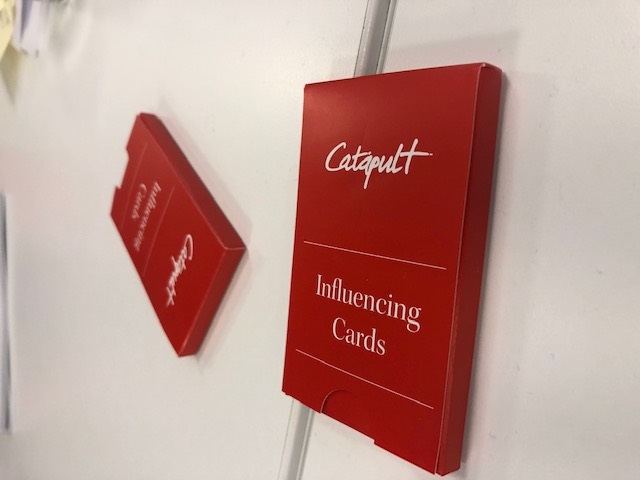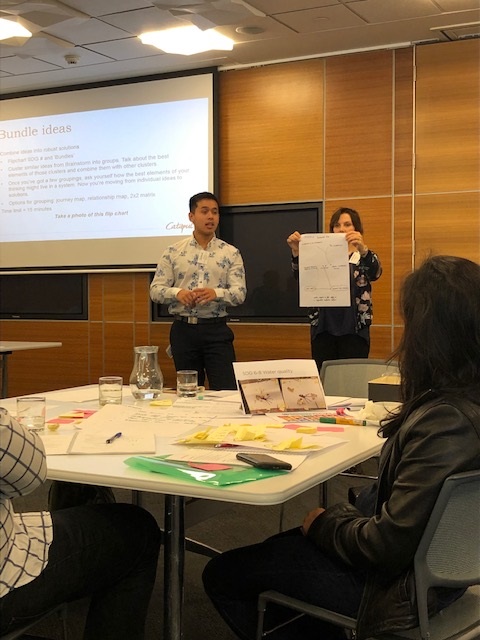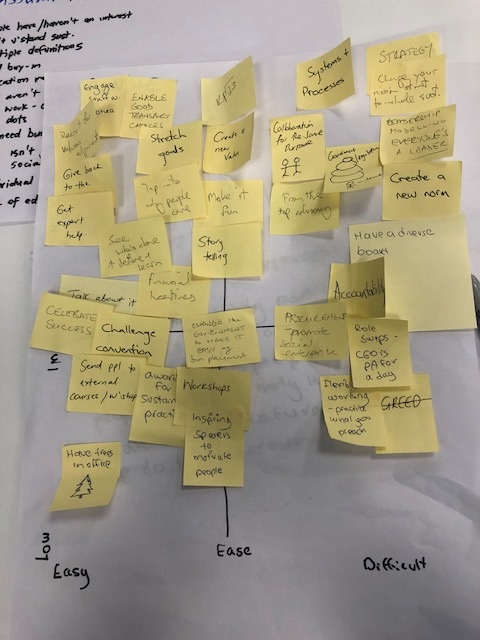Fly me to the moon – another Sustainability Leadership report
Jay Crangle, our new Events and Training Manager, reflects on her second workshop at our Sustainability Leadership Programme, delivered by Catapult. This time we go via the moon landing to how we respond to challenges has so much to do with whether we approach them with gloomy pessimism or curious optimism.
Jay Crangle, our new Events and Training Manager, reflects on her second workshop at our Sustainability Leadership Programme, delivered by Catapult.
88 beats per minute – the heart rate of Buzz Aldrin during the launch of Apollo 11, a journey the world made 50 years ago last month. If I had been the Lunar Module Pilot, the heart monitor would have been nearer 282, and the call to Houston would have been about my need for new underpants…
Buzz Aldrin has been interviewed many times about how his experiences preparing for the moon landing. And each time he has spoken of his confidence in NASA and his fellow astronauts to achieve the seemingly impossible. He recognised the immense risks, but also saw the immense opportunity.
How we respond to challenges has so much to do with whether we approach them with gloomy pessimism or curious optimism (incidentally my two moods on Monday morning vs Friday night).
Workshop 2 of our Sustainability Leadership Programme opened by looking at mindsets, and how the way we perceive things influences how we deal with them. Just as beer goggles causes us to think that shot of sambuca on a Tuesday is a good idea (the SBC team knows what I’m talking about), so approaching things with creative confidence can help us get results.
These results can come about through different methods as we pass through the stages of inspiration, ideation and implementation. Reframing our sustainability challenges as breakthrough questions helped us figure out the impact we wanted to have.
|
|
|
|---|
Our Facilitators urged us to make our question not too narrow nor too wide (Goldilocks would be proud). As one of my fellow attendees put it “If you put what you’re struggling within into a question, it opens up a world of answers.”
No training session would be complete without brainstorming. At my table we were looking at how to change the culture of an organisation so sustainability becomes part of everyone’s roles. We brainstormed solutions big and small, and mapped them against impact and effort.

We were encouraged to think creatively – although my suggestion of launching sustainability dissenters into outer space was sadly discounted (due to the emissions generated). Winners on the day ranged from little actions to connect staff with nature, to embedding sustainable practices into KPIs.
Sustainability challenges don’t have easy cause and effect relationships. That’s why we explored “safe to fail” experiments in our implementation phase. Safe to fail experiments are those in which any failure can be small and tolerable, but should the experiments work, they can be scaled up.
As someone who discovered a closet love of certainty in my personality analysis in Workshop 1, I struggle with safe to fail experiments. But everything has got to be safer than launching a rocket to the moon, so that helps put things in perspective.
As in Soylent Green, the most important ingredient is people. We rounded off our training day looking at how important a human-centred approach is to problem solving. This isn’t rocket science (final pun of the blog, I swear) but it is helpful to be reminded that all of our challenges relate to influencing others. We explored many ways to do this, including using our handy deck of Influencing Cards.

I tried out a number of techniques this week, including influencing a senior stakeholder to trial an Ask Me Anything webchat. It’s a small thing, but will hopefully have a big ripple effect for our members. I suppose you could say it’s one small step for Jay, one giant leap for womankind.
The SBC Sustainability Leadership Programme has been developed specifically for senior business leaders and managers, with accountability for sustainability outcomes and leadership.
Contact: Jay Crangle, Events and Training Manager
Phone:
Email:


